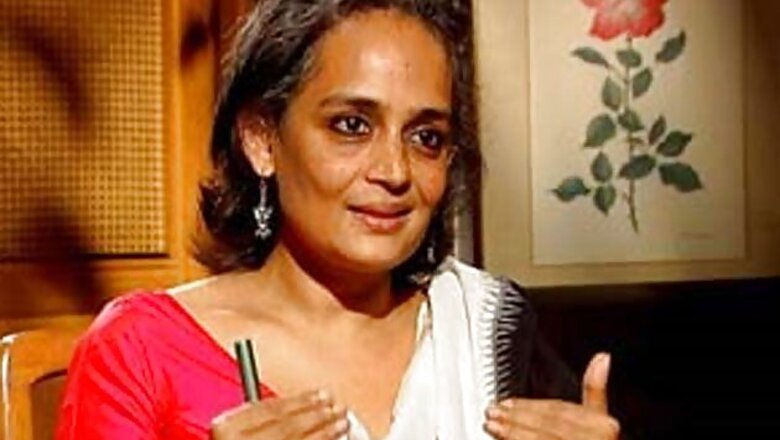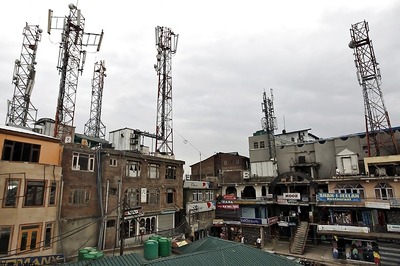
views
While it is normal for Arundhati Roy's views to be questioned and criticised, it is not often that one finds her self-perceived role as mediator on certain matters questioned at a fundamental level. That this has happened in relation to a long-ago ideological duel between Ambedkar and Gandhi makes it doubly interesting.
Roy's most recent foray into India's fractured political landscape has been in the form of an introduction to Dr BR Ambedkar's essay 'The Annihilation of Caste'. The essay itself has a well-documented history, being an intended lecture at an anti-caste meeting in 1936. The speech was rejected by the organisers, following which Ambedkar published it himself, and it has been a seminal treatise on the nature of caste and its fallout in Indian society. Mahatma Gandhi critiqued Ambedkar's take on the issue, to which Ambedkar wrote a response, and this series of communications has also been published. While Ambedkar for post-Independence India remains largely connected to the framing of the Constitution, his writings on caste continue to be studied by academics and admired by those who grapple with the system today.
Therefore, this new edition of the essay has been marketed by its publisher not so much as previously unavailable work, but for Roy's introduction and take on it, as well as the Ambedkar-Gandhi divide.
Roy's taking on the role of mediating Ambedkar for the modern Indian reader has come in for trenchant criticism. As caste writer Anoop Kumar acerbically notes in Roundtable India, the site for Ambedkarite philosophy, the modern Indian reader apparently requires your own high priestess to now interpret Ambedkar for you. "To tell you what was right and wrong with Ambedkar. To force you to even start reading him." Here Kumar makes it clear that his principal objection is not to the contents of Roy's introduction, but to her appropriation of this "priesthood" which she can discuss at length in mainstream print magazines, a space and opportunity denied to other, lesser-known Ambedkar experts who have been discussing him, academically or otherwise, far longer. Tellingly, Kumar compares this inability of caste discourse to penetrate mainstream consciousness to a barrier that Ambedkar himself was unable to breach.
Roy is now taking Ambedkar to the upper and established castes, and to the West, is another indication of how little has changed since the 30s. There is some merit to this argument. 'The Annihilation of Caste' was meant to be a lecture at a meeting of the Jat-Pat-Todak Mandal, a descendant of the Arya Samaj, and although vehemently anti-caste, was led by the upper castes. While sympathising with Ambedkar's larger political views, the organisation was wary of his conclusion that the existence of caste raised serious question about whether Indian society was capable of governing itself just then. Essentially, the Mandal was claiming the mantle of caste interpretation to society and the West, just as Kumar accuses Roy of doing today.
Kumar goes on to refer to the Gandhi-Ambedkar divide. In telling Roy that he, and others like him, would not try to resist her appropriation of another messianic role, Kumar mentions how difficult it was to "dislodge a messiah" for seventy years, referring to Gandhi, and the perils of critiquing Gandhi's view of caste in the mainstream media.
Referring to Kumar's criticism, which he finds relevant, publisher and columnist Akshay Pathak comments on the irony that a profound thinker like Ambedkar is now being championed by a "PR agent" in the form of "a celebrity and extremely privileged writer". He also points out the condescending tone Roy allegedly employs when, referring to the numerous Dalit voices in the past who have discussed Ambedkar versus Gandhi, Roy expresses the hope that this edition would start ä real debate". Pathak wonders whether this implies that the efforts and commentaries by Dalit writers were neither genuine nor sufficiently "star-studded."
While Ambedkar's philosophy is in dire need of being discussed more extensively than in the limited space Independent India has chosen to give him, such criticism of Roy does beg the larger question: does the modern Indian reader really need the works of great Indian minds to be championed and promoted by famous names, rather than on their own merit, or by others who who dealt with these philosophies intensely for very long? This election season, as the familiar caste equations are bandied about and vote banks analysed like so much statistics, philosophy as fundamental to the nation, and as universally relevant as Ambedkar's needs to be understood and read by everyone, regardless of fashionable recommendations, and regardless of marketing strategies by publishers.




















Comments
0 comment